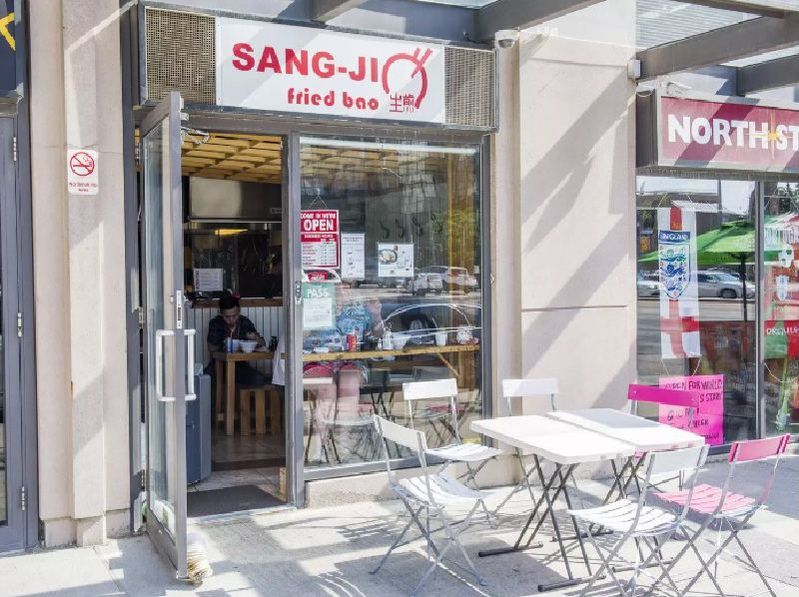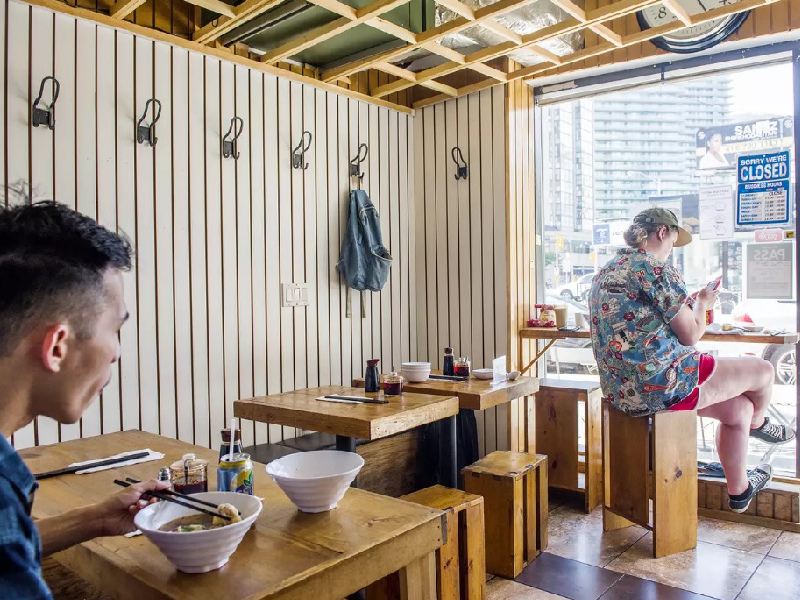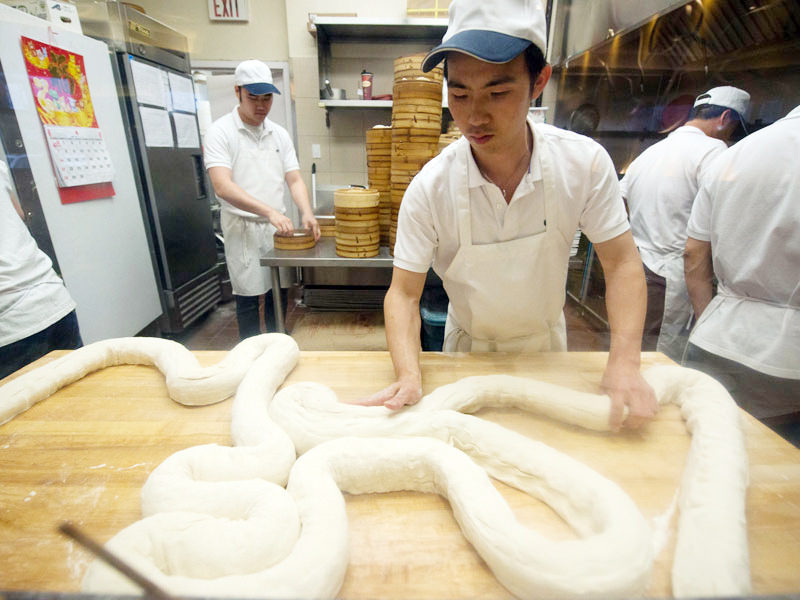|
By Athena Yuan John Xue first landed in Canada with his family when he was 15 years old. With limited resources, John got his first job at McDonald’s as a kitchen helper. “I was paid minimum wage, but I was happy to make money for myself.” 15 years later, John owns his own restaurant – Sang-Ji Fried Bao- that serves Shanghainese-style pan-fried shengjian bao. John’s restaurant is located near Yonge and Finch, and is considered to be one of the busiest restaurants in that area. A study from Statistics Canada finds that 5.3% of immigrants own a private company after staying in Canada for nine years. This means that immigrants are able to form new businesses more quickly than the Canadian-born population (4.8%). Statistics Canada does not explain why the rates of private business ownership are higher among immigrants, but suggests a lack of opportunities in the paid job market, earning a substantial income or having job flexibility are some of the reasons. John’s last full-time job was in a fine dining restaurant in Toronto. “I was the manager for a restaurant that seated 500 people. I worked very hard, but my efforts didn’t pay off.” John worked 13-hour days, and received $3,300 per month before tax. Now, his restaurant creates six jobs for the local community, and his business is stable. Differing from John, Eris You, who was born in the 90s, says she never thought of working for any company. Eris arrived in Canada in 2011 as an international student, and opened her pet supply store, Cola Pet, just a year ago. She has three employees and is planning to open a second location. “I work for my passion, not money; I prefer flexible working hours rather than being constrained by something,” says Eris. She could work as an accountant in local banks or financial institutions, like some of her classmates who major in accounting, but Eris chose to knock on doors along Yonge Street to find a property for her own business." “It’s a challenge! I had to figure out all the regulations, hire the right people, and always keep an eye on my competitors. I started from nothing.” But what’s more challenging to Eris is finding a full-time position. A survey from Policy Options shows that job applicants with Asian names were 28% less likely to be called for an interview, than applicants with Anglo-Canadian names. The results of the survey did not change, even when both groups had equivalent qualifications, education and work experience and were Canadian. Eris says: “I am confident that I can at least find a job, but not necessarily a good one.” Even though Eris hasn’t had any job application experiences, she says she could imagine that she wouldn’t get a decent position because of her Chinese accent. “Toronto is a multicultural city and I feel welcomed by the people here, but it’s not necessary to change my habit and lifestyle to adjust to the Canadian economy. I have found my way.” After staying in Toronto for seven years, Eris identifies herself as Chinese and spends most of her leisure time with her pets and Chinese friends. As for John, has a different take on his life in Canada. “I am a Chinese Canadian. My Chinese part comes from my family, and my Canadian characteristics come from the western society I have been living in for the past 15 years.” John says one of the things that motivated him to start a business, was to bring the authentic taste of his hometown to where he chooses to live now.
But if given another chance, John says: “I would prefer to be hired by others, if my hard work paid off.” |
Recent Posts
Categories
All
Archives
February 2022
|
|
GET THE APP!
Listen to VIBE 105 anywhere you go!
|
OUR STATION
|
TUNE IN RADIO
|
STAY CONNECTED
|
Copyright © 2021 Canadian Centre for Civic Media and Arts Development Inc. Except where otherwise noted, presentation of content on this site is protected by copyright law and redistribution without consent or written permission of the sponsor is strictly prohibited.







 RSS Feed
RSS Feed


